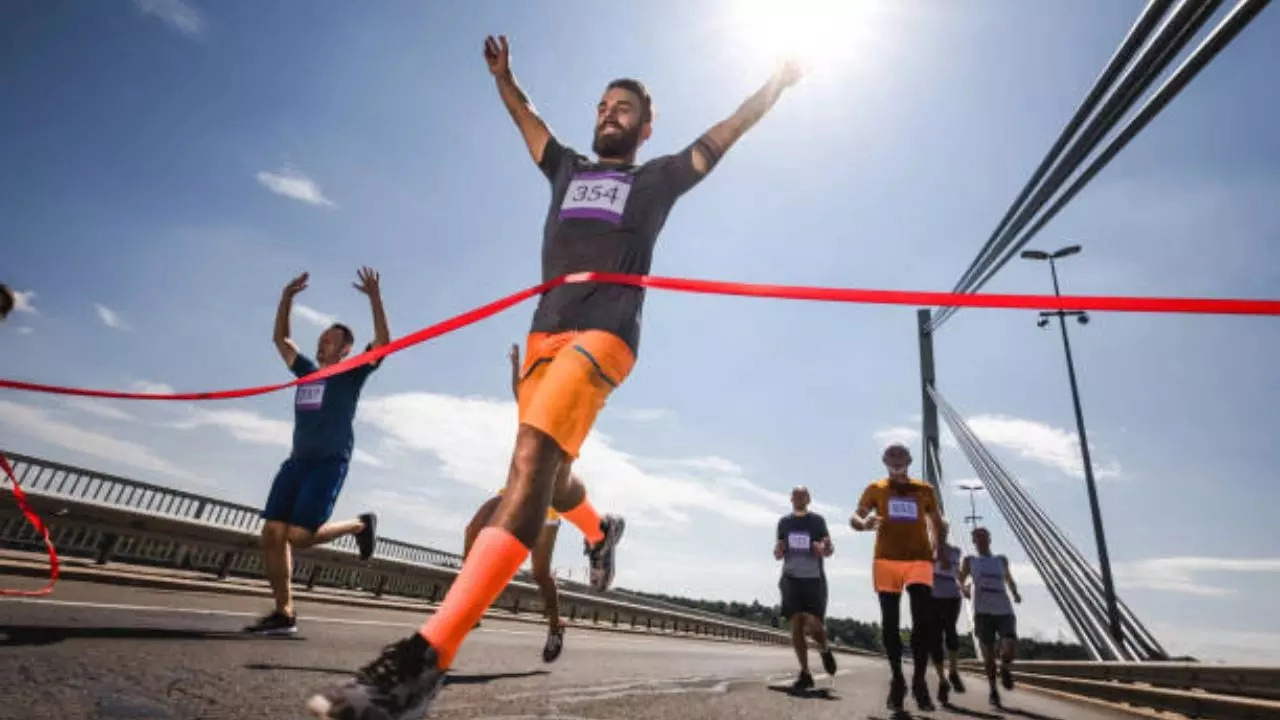5 Things That Happen To Your Body When You Run A Marathon
Oct 21, 2024
News

Since most runners begin at a high speed, they usually end up burning through their body's energy stores earlier and fatiguing faster
Running a marathon is a physical challenge like no other. Those who consistently run and are used to participating in marathons, do undertake extensive training - making their body and brain used to the kind of discipline. But what exactly happens to your body when you run for such long distances? Here’s a proper breakdown.
According to experts, since most runners begin at a high speed – they usually end up burning through their body's energy stores earlier and fatiguing faster. Running a marathon is not just strenuous for your body, it also affects your biomarkers that fluctuate in response.
In shorter running events, which you may be doing daily, you do not have to worry much about food or water and so, longer distances would mean increased sweat and a greater calorie burn because you are on the road for a longer time.
What happens to your body while running a marathon?
Stomach cramps
Experts say stomach cramps are among the most common complaints when you run a marathon. Even though no one is sure why some runners get cramps while others don't, many doctors feel there can be a neuromuscular issue - caused by a malfunction in a reflex between your muscle and spinal cord.
While running, cramps are often caused by setting off too fast, so, you must stop and stretch it out as soon as you can.
Heart rate comes down
According to doctors, while running a marathon, your heart rate goes down, and so, after crossing the finish line, it is important to keep moving for a bit. You can rehydrate with fluids and electrolytes and eat a balanced recovery meal that includes carbohydrates, protein, and colourful fruits.
A study says the average heart rate drop for marathon runners was 23.08 beats between immediately after the race and after two minutes.
You may become dehydrated
Doctors say an hour into the race is the best time to gulp down fluids – including water to replenish the lost electrolytes. You can take sports drinks – which have water and electrolytes - which are minerals that maintain fluid balance and spark muscle contractions in your body. The Cleveland Clinic says since you lose electrolytes – including sodium, calcium, and potassium when you sweat, these drinks support athletic performance.
It also helps avoid hyponatremia - a potentially serious condition in which you become over-hydrated and your sodium drops below healthy levels.
Muscle fatigue
Running long distances can lead to muscle fatigue – as byproducts of the body’s energy-making processes produce lactic acid, which begins to build in your muscles, ultimately inducing fatigue and soreness.
And if you do not use your muscles effectively when fatigue sets in, it causes strains, injuries, and cramps. And so, the best solution is to be well-trained before undertaking a marathon challenge. Experts recommend changing your stride for short bursts every mile and alternating between bigger and smaller steps.
It can cause kidney damage
According to doctors, on the marathon day, your kidneys - working hard to filter waste from your blood – can suffer mild damage. It happens because your body diverts blood from the organs to keep you moving forward. Also, dehydration restricts blood flow through the kidneys.
However, mostly the kidneys repair this damage on their own, so there is nothing much that is needed to be done.
Get Latest News Live on Times Now along with Breaking News and Top Headlines from Fitness, Health and around the world.



